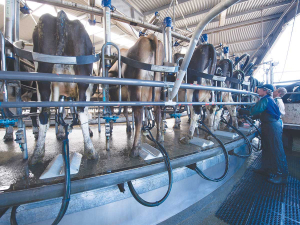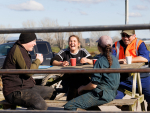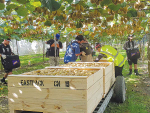OPINION: Migrants are a critical and valued part of dairying in New Zealand, filling skills shortages on farms when there aren’t enough local workers available.
The sector currently has about 4000 migrants on work visas (18% of total sector employees) and another 1500 on resident visas (mostly employees but some employers).
The NZ Government, like other governments around the world, is facing a growing unemployment queue thanks to Covid-19. They are under pressure to employ locals.
But it isn’t as simple. All those out-of-work Queenstown baristas are hardly likely to give up and move sticks to the Waikato, don an apron and start milking cows.
Dairy farmers have been – rightly – calling on the Government to better understand their plight. They can’t get workers from overseas, while suitable Kiwis are hard to find and those migrants still working on NZ farms are facing uncertain times.
A stand-down requirement is pending for many overseas farm workers, an enforced 12-month period away from New Zealand after spending three years here working in ‘low-skilled’ farming roles. After extensive lobbying by Federated Farmers and Dairy NZ, this has been delayed until next year. However, now these low-skilled visas must be renewed every six months, putting the employee and the farmer through the expense and uncertainty of a visa renewal twice a year.
The 12-month stand-down period remains.
These migrant workers will not be returning to their country of residence waiting out their NZ work visa one year stand down. They will move on to another country where they can get work and be appreciated. We train them and pass them on to our competitors.
Marlborough farmer Catherine Tither says this is not fair to migrants nor employers.
“It is not good business practice to train up then dismiss valuable employees; worse still to export our knowledge and skills to our competitors.”
She also points out that a misconception anyone can be trained in dairy farming in a couple of weeks. The tasks and focus on farm changes every couple of months. As the season progresses from wintering dry cows, through calving, mating, supplement making, summer dry, and in autumn preparing the cows and the farm for the following season the focus and tasks change.
The skill set involved is broad and varied. The standards of milk quality, animal welfare, environmental compliance and traceability are constantly evolving. Tither is on the mark when she says the industry “is not for any Tom, Dick or Harry”.










